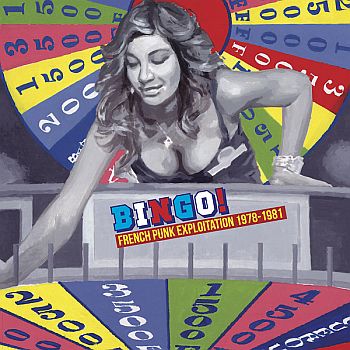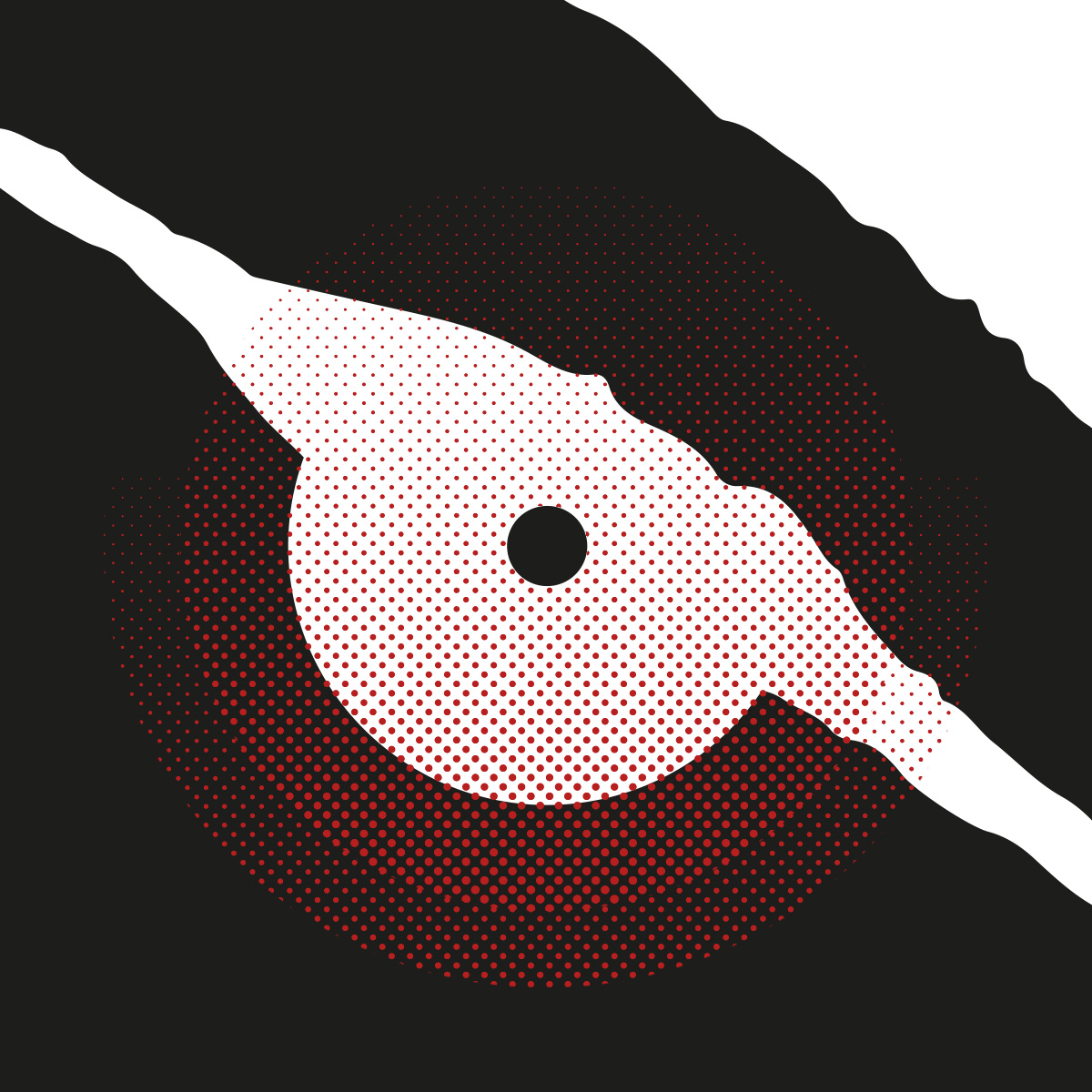
Born Bad
v/a- BINGO!: French Punk Exploitation 1978-1981 LP
$37.95
Printed inner sleeve with liner notes.
The real, great rock'n'roll swindle? You'd better search Belgium, and more specifically somewhere near Lou Deprijck and Yvan Lacomblez, two born-and-bred "Brusselians". If their names don't ring a bell at first glance, you've most likely already wiggled to their interplanetary hit "Ça Plane Pour Moi": A moronic song by a crappy singer... The prank swept through the world and within a few months, no less than one million 45s were sold just in France. It spawned mass-produced cover versions, becoming a universal punk anthem. Of course, such a cash cow would arouse envy and create quite a few vocations among our fellow countrymen. The song's trademark derision was about to bridge the missing link between original punk -- too violent, too dirty -- and the general public eager to enjoy a little Saturday-night pogo. Humor became the magic bullet to conquer a frightened audience. The formula had already proved successful. Remember the arrival of rock'n'roll in France (1957) through Boris Vian, Henri Salvador, and Michel Legrand. Their famous, jokey "Rock and Roll-Mops" already laid the foundations for the same equation: joke + rock'n'roll + derision = success. The big labels tried to produce punk bands in France -- Polydor signed the Stinky Toys and the Guilty Razors -- but only to result in huge commercial failures. But in the face of Mr. Bertrand's huge success, those big labels thought they understood how it worked. Music publishers and majors all wanted a punk hit. A&R executives brought all of their seasoned producers, composers, and lyricists into the stampede: eccentric arrangements, daft and stereotyped lyrics -- one-upmanship was the rule. An unprecedented bunch of punk-novelty records followed. Even André Verchuren had his own unbridled accordion cover version of "Ça Plane Pour Moi". Sure, most of these punk hoaxes are real lousy, real shitty but one must admit that some numbers stand out of the crowd. While they didn't reach the success of "Ça Plane Pour Moi", some, here and there, were really inspired and even more creative than the songs they hijacked and mimicked. Features: Piero, Soda Fraise, Stéfan, Geiger, Too Much, Gérard Bôle Du Chaumont, Sublime Deluxe, Bulldozer, Les Marylènes, Gisor, Anatole Frantz, Fatsy Wataire, and Plastichke.
The real, great rock'n'roll swindle? You'd better search Belgium, and more specifically somewhere near Lou Deprijck and Yvan Lacomblez, two born-and-bred "Brusselians". If their names don't ring a bell at first glance, you've most likely already wiggled to their interplanetary hit "Ça Plane Pour Moi": A moronic song by a crappy singer... The prank swept through the world and within a few months, no less than one million 45s were sold just in France. It spawned mass-produced cover versions, becoming a universal punk anthem. Of course, such a cash cow would arouse envy and create quite a few vocations among our fellow countrymen. The song's trademark derision was about to bridge the missing link between original punk -- too violent, too dirty -- and the general public eager to enjoy a little Saturday-night pogo. Humor became the magic bullet to conquer a frightened audience. The formula had already proved successful. Remember the arrival of rock'n'roll in France (1957) through Boris Vian, Henri Salvador, and Michel Legrand. Their famous, jokey "Rock and Roll-Mops" already laid the foundations for the same equation: joke + rock'n'roll + derision = success. The big labels tried to produce punk bands in France -- Polydor signed the Stinky Toys and the Guilty Razors -- but only to result in huge commercial failures. But in the face of Mr. Bertrand's huge success, those big labels thought they understood how it worked. Music publishers and majors all wanted a punk hit. A&R executives brought all of their seasoned producers, composers, and lyricists into the stampede: eccentric arrangements, daft and stereotyped lyrics -- one-upmanship was the rule. An unprecedented bunch of punk-novelty records followed. Even André Verchuren had his own unbridled accordion cover version of "Ça Plane Pour Moi". Sure, most of these punk hoaxes are real lousy, real shitty but one must admit that some numbers stand out of the crowd. While they didn't reach the success of "Ça Plane Pour Moi", some, here and there, were really inspired and even more creative than the songs they hijacked and mimicked. Features: Piero, Soda Fraise, Stéfan, Geiger, Too Much, Gérard Bôle Du Chaumont, Sublime Deluxe, Bulldozer, Les Marylènes, Gisor, Anatole Frantz, Fatsy Wataire, and Plastichke.




